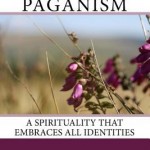Atheist critiques of religion are mostly valid, insofar as they are true. I think the atheist critique does religions a great service – it’s like having an independent auditor to look at your work and check for shoddy bits. So how does Paganism measure up to the atheist yardstick?
Critique 1: “It’s all irrational”
Yes, of course it is. The emotions, spiritual experience, love, awe, wonder – these are not cognitive responses to the world, so are by definition not rational.
However, my religion has to be compatible with reason and experience. When it goes beyond the empirical evidence, those bits are marked “working hypothesis” and “conjecture”.
There are degrees of irrationality; not all “woo” is equally irrational. Just because I posit the possibility of earth energies as a working hypothesis to explain certain experiences that I have had, does not mean that I also believe in ley lines, homoeopathy, or other forms of “woo”. I’d quite like to believe in homoeopathy, but having examined the evidence against it, can only conclude that it doesn’t work.
Critique 2: “The moderates give shelter to the extremists”
That is not even true. The moderates do not “give shelter” to the extremists. The moderates get out there and protest against the extremists (e.g. Standing on the side of love; Religious Coalition for Reproductive Choice). And get killed for it (e.g. James Reeb, and Tennessee Valley UU church).
The moderates and liberals try to present a more loving, inclusive, and reasonable faith, but most of the time it doesn’t even get noticed by the media. How can this be “providing shelter” to the fundamentalist nutters, when we call them out on their bullshit ALL THE TIME but are drowned out by their strident bigotry?
Critique 3: “Religions persecute non-believers”
The Roman Empire persecuted the early Christians; however, this was in the name of the state religion of emperor worship (because Christians wouldn’t make offerings to the genius of the emperor), rather than in the name of paganism as such.
Modern Pagans do not persecute anyone, and religion in general has made great strides in interfaith dialogue. However, there are still too many fundamentalists, and we need to guard against any fundamentalist tendencies emerging in Paganism.
This is a valid critique of religions. There has been far too much persecution over the centuries.
Critique 4: “The universe doesn’t look as if it was created by a deity”
Agree strongly. Deities (if they exist) are an emergent property of the universe, not the other way around.
Other liberal religions (such as the UUs) have redefined their view of the Divine to mean the ground of all being. Apophatic theology (such as that put forward by the Christian theologian John Scotus Eriugena in the 9th century, who pointed out that God doesn’t exist) has long stated that the Divine cannot be described by any physical terminology.
Critique 5: “Dogma and doctrine get in the way of experiencing the world directly and are in conflict with reason and empirical evidence”
Agree strongly. Pagan religions are non-dogmatic; it’s up to individuals to decide what they believe, based on experience and reason. I have occasionally heard people say, “We do it this way because of tradition”. That is completely bonkers when the tradition is only 50 years old. No-one should do anything just because it’s traditional; there should always be a valid reason behind it, like “because it works”, “because it makes me feel good”. (Always subject to the proviso that it harms no-one else, of course.)
Critique 6: Religions indoctrinate people
Fundamentalist religions indoctrinate people; liberal religions don’t. In a survey carried out by Covenant of the Goddess (an American Pagan organisation) in 2005, 49% of respondents indicated having no children, and of the remaining 51%, only 27% (i.e. approximately 13% of the total sample) said that they were bringing their children up as Pagans. 52% of those with children said they were bringing them up in a multi-faith environment; 9% said ‘another faith’; and 12% said ‘none’. Even those brought up as Pagans might not choose to practise a Pagan tradition as adults – I have met many children of Pagan parents who did not go on to be Pagan themselves, though many of them seemed to have absorbed Pagan values (of the sort mentioned above) from their upbringing.
Pagans are free to make up our own minds about how the world works. There are atheist Pagans, naturalist Pagans, humanist Pagans, pantheist Pagans, polytheist Pagans, duotheist Pagans, henotheist Pagans, animist Pagans… and unclassifiable / “it’s complicated”.
Critique 7: “Liberal religion is just moving the goalposts”
One aspect of the atheist critique of religion that has me completely baffled is the objection to classifying the obviously mythical aspects of religion as a metaphor. The philosophers of ancient Greece knew that the stories of the gods of Olympus were metaphors. The Eastern Orthodox Church was saying in the 4th century CE that the Garden of Eden story was a metaphor. It’s not dishonest to say that the obviously metaphorical bits of mythology are not literally true. I have always said that Pagan mythology is metaphorical, and so do most Pagans – indeed, I dare say the most devout hard polytheist would say that the stories of the gods are not literally true.
The tendency to insist on everything in the Bible being literally true is something that only became really popular in the late nineteenth century (according to Karen Armstrong, anyway, who admittedly sometimes looks at religion through rose-tinted spectacles). So the idea of seeing the stories of religion as allegorical is older than the idea of taking them literally. It’s not a new thing invented specially as a defence against atheist critiques. Indeed, the rise of atheism (which wants to take the stories literally in order to debunk them) seems to go hand-in-hand with the rise of fundamentalism (which wants to take the stories literally and believe them).
Many atheists seem to assume that in order to do religion properly, you have to take every last jot and tittle of its creed as part of a monolithic system, and if even one crack is introduced, then the whole edifice will come crashing down. But why shouldn’t people of religion also use scientific method, deductive reasoning, and so on in order to think about things? And if science successfully disproves a religious claim, then surely the honest thing to do is to admit that the claim is false? The Dalai Lama was once asked what he would do if science proved that reincarnation didn’t exist. He answered that he would advise Buddhists not to believe in it any more.
Any questions?
If you have any other critiques to offer, or questions, please post them in the comments.
















